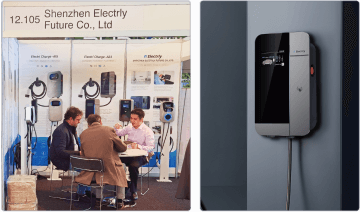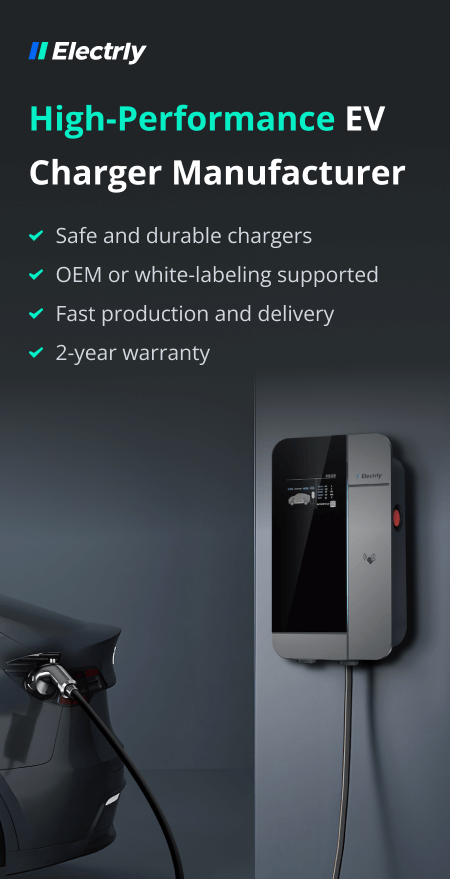Charging an EV can seem complicated at first, but it is actually very simple once you get to know the terminology. A common type of connector that most EV chargers use for fast charging is CCS connector, and since this is in more widespread use these days, it is important to understand what it is and how to use it.
What Is CCS Charging?
To start with, CCS stands for Combined Charging System, and is a type of connector becoming popular in North America and Europe. It is an international standard system, which means that it is used by EV manufacturers around the world.
It is called Combined because it is based on the Level 2 connector, the standard low power connector that comes with all EVs, and the CCS adds two additional direct current (DC) power lines which run at a higher voltage than the standard connector, enabling much faster charging. The advantage of a DC connector is that it feeds directly into the EV battery, whereas the standard Level 2 AC charger has to be converted to DC by the on-board vehicle charger.
CCS vs CHAdeMO: What Are the Differences?
CHAdeMO is another charging system developed by a group of EV manufacturers in Japan. The name of the group is Charge de Move, which shortens to CHAdeMO, and their idea is to create a fast-charging system that all EVs can use, although it is still mostly used by Japanese EVs.

Like CCS, CHAdeMO is a DC connector, however while CCS is universal and uses the standard J1772 connector found on all EVs, CHAdeMO requires its own connector and needs an adapter for use with Level 2 charging systems.
Charging times with the two types of connectors are about the same since the time is dependent on the voltage, and both CCS and CHAdeMo have similar voltage connectors. It is common for either type to fully charge a battery in 20 minutes to 1 hour.
CCS is now more widely used in the US and Europe than CHAdeMO which is still used mostly in Japan. Currently the only two manufacturers supplying EVs with CHAdeMO connectors are Nissan and Mistubushi, and there are indications that CHAdeMO is being phased out in favor of CCS.
How to Use a CCS Connector?
The first thing to know is that CCS charging cannot be done at home, since it uses DC, and all home systems are AC. However most commercial EV charging sites allow the use of DC connectors, so CCS can be used anywhere there is a charging point.
You can use a tool such as Open Charge Map to find the nearest CCS charger or just look out for the logo, which is basically a design showing the CCS connector.
When you arrive at the charging location, just pull up next to it in your EV and plug the connector into your car, following the instructions on the charging unit. The connector will lock on to your car while it is charging, and unlock when it is fully charged – you will be able to see the charging progress on your car's touch-screen.
If you want to stop charging before it is fully charged, make sure to press the stop button before disconnecting the charger, since this could cause damage,
What Is the Speed of a CCS Connector?
Most EVs using CCS will charge in an hour or less, although this can vary depending on your car's battery capacity, the types of battery, and the remaining power level in the battery.
Charging times can also vary depending on the CCS connector's power rating, which can vary from 50KWh to 350KWh. However even at the lowest rating it is usual to get about 75 miles of charge in 30 minutes.
A point to note is that the last 10% of charge can take as long as the first 90%, so on a long trip it can be quicker to charge up to 50% several times over shorter distances rather than use maximum power and have to recharge fully after a longer distance traveled.
Which Cars Use CCS Charging?
CCS charging can be used by most EVs in the US, since the CCS connector uses the standard J1772 connector with two additional pins for DC charging. The J1772 is common to nearly all EVs, except for Tesla, which can still access CCS charging provided they have the correct adapter. However some cars such as those made by Nissan and Mitsubishi can only use the CHAdeMO connectors.
Although fast charging is available for all model EVs, it is important to note that it cannot be used for plug-in hybrid vehicles (PHEVs), which can only use Level 1 or Level 2 chargers.
Will CCS Charging Harm My EV?
Charging an EV battery causes it to heat up, and this increases with rapid charging using CCS. Tests have shown that while this does not damage the car or the battery, it may eventually shorten the battery's life. A sensible approach is to use Level 2 charging overnight at home for most daily use, and use CCS fast charging when on a longer trip.
What Does CCS Charging Hold for the Future?
In the year 2020 there were around 1 million EVs on the road in the US, and it is expected that by 2030 this will jump to 15 million, and most experts believe that EV owners will use two systems – Level 2 for home charging, and CCS for rapid charging on the road.
However it is believed that the current range of power ratings will reduce, with the optimum being 150 KWh, since all electric power has to be produced from somewhere, and the current range up to 350 KWh is not sustainable given the expected increase in demand.
Since CCS is more costly than Level 2 charging, more people will charge at home, usually overnight, whenever possible to save electric bills.
There are also other developments which may change the face of charging, such as wireless charging, and automatic charging, and even EV batteries that charge themselves as the vehicle is being driven. While these are all in the very early stages, as technology changes and develops rapidly over the next ten years, it is possible that completely new methods of charging will be widespread in the future. Whether CCS will still be part of the future remains to be seen.
FAQs
What Is the Price of the CCS Connector?
EVs produced in the US and most of Europe already have the CCS connector fitted, since it is just an extension of the standard J1772 connector. However, customers can buy a CCS adapter whose price is ranging.
Can Tesla Charge at CCS?
Tesla EVs have their own unique chargers, however all Tesla models produced since 2020 can use CCS with a special adapter, which Tesla retails for $175. Models prior to 2020 need to be retrofitted, at a cost of $450.
What Is the Difference Between Level 2 and CCS?
Level 2 is a 3 phase AC connector, similar to some major household appliances and is generally used for home charging, although it can also be used at outside charging outlets. CCS is a DC connector which can only be used at charging outlets, not at home.
Which EV Chargers Use CCS?
CCS is used on a wide range of EVs, including BMW, Daimler, FCA, Ford, Jaguar, General Motors, Honda, Hyundai, Kia, and Mazda, and is the main system for rapid charging in the US.


